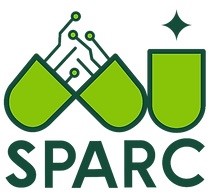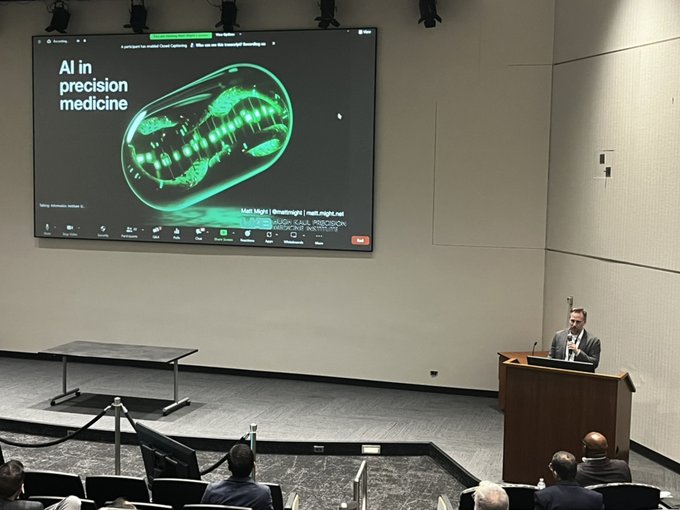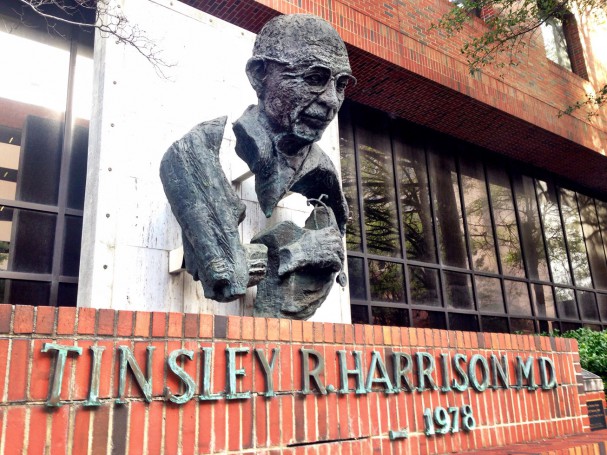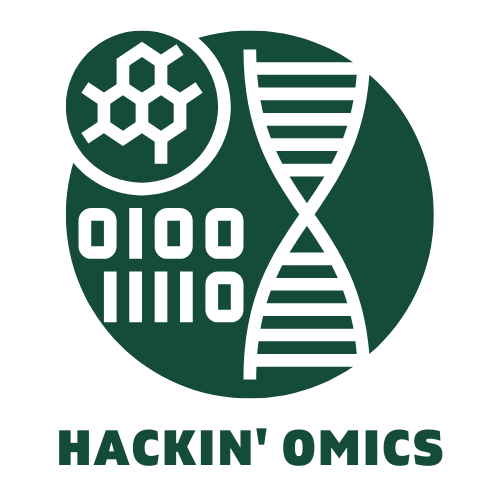Department News
Spotlight interview: Tiago Colicchio, Ph.D., MBA
Assistant Professor of Medicine Tiago Colicchio, Ph.D., whose research focuses on increasing the situational awareness of clinicians through the design of electronic clinical documentation systems, joined the Department of Biomedical Informatics and Data Science (DBIDS) in 2017 after receiving his Ph.D. from the University of Utah in biomedical informatics. Recently, he spoke about his journey to being part of UAB, his passion for electronic health records (EHR), and his overall vision as it relates to the world of informatics in the future.
DBIDS symposium welcomes department to Heersink School of Medicine
The Department of Biomedical Informatics and Data Science (DBIDS) hosted their opening symposium at the Hilton Birmingham Hotel on the campus of the University of Alabama at Birmingham (UAB).

Whole-genome sequencing study of disease aims for precision treatment
Kawasaki disease, a mysterious condition considered the leading cause of acquired heart disease among developed countries, is now the focus of a whole-genomic sequencing study that details a variety of genetic variations associated with non-responsiveness to intravenous immunoglobulin (IVIG) treatment. As part of this study, Chief Bioinformatics Officer Jake Chen, Ph.D. is serving as a collaborator for this project.
Spotlight Interview: James Cimino, MD
The Department of Biomedical Informatics and Data Science (DBIDS) recently became the 28th academic department of the Heersink School of Medicine, at the University of Alabama at Birmingham.
We spoke with Distinguished Professor of Medicine and Chair of the DBIDS, James Cimino, MD, to gather his perspective on the transition from an institute to a department, as well his visions for the department's future.
New informatics research center to focus on artificial intelligence
The University of Alabama System Board of Trustees approved the creation of the UAB Systems Pharmacology Artificial Intelligence (AI) Research Center (SPARC). SPARC, in partnership with the Heersink School of Medicine (HSOM) and the Center for Clinical and Translational Sciences (CCTS), will advance the use of AI, systems biology, and quantitative pharmacology in drug discovery through research innovation and interdisciplinary collaborations.
CAST-USA honors faculty member
Chief bioinformatics officer Jake Chen, Ph.D. was honored with the Pioneer Award during the Global Technology Innovation Summit, hosted by the China Association for Science and Technology in the United States (CAST-USA) .
.
The award, one of the most significant within academia and industry, recognizes the academic achievements and groundbreaking contributions of Chinese scientists globally throughout various fields.
The 31st edition of the Summit featured several prominent experts and scholars, with tremendous presentations highlighting technological innovation. The event received high praise and widespread attention from multiple scientific, academic, and overseas Chinese communities.
DBIDS chair named to AMIA board of directors
Chair of the Department of Biomedical Informatics and Data Science (DBIDS) James Cimino, M.D. was named Treasurer of the AMIA Board of Directors during the American Medical Informatics Association (AMIA) 2023 Annual Symposium in New Orleans.
Faculty member co-chairs Bridge2AI meeting at UCLA
Chief bioinformatics officer Jake Chen, Ph.D. served as the program co-chair of the Bridge2AI Fall 2023 Face-to-Face Leadership Meeting, held November 6-7 on the campus of UCLA.
CEI symposium highlights health equity
Members of the Department of Biomedical Informatics and Data Science (DBIDS) participated in the Community Engagement Initiative (CEI) Symposium, held on October 31 at the Hilton Birmingham Downtown at UAB.
Hackathon addresses patient safety through use of artificial intelligence
The 5th Annual Data Sciences Hackathon was held virtually on September 9-10 and was hosted by the UAB Department of Biomedical Informatics and Data Science (DBIDS) in conjunction with the Center for Clinical and Translational Sciences (CCTS). External sponsors for the event included the Pittsburgh Regional Health Initiative and the Jewish Healthcare Foundation.
Informatics award highlights research in cancer algorithms
John Osborne, Ph.D., assistant professor of medicine at the Department of Biomedical Informatics and Data Science, recently received a notice of award for a U24 supplement to develop a cancer algorithm predicting the severity of cancer recurrence in patients. The work will build on previously funded work to identify recurrence retrospectively in UAB cancer patients using structured EHR data and clinical text. 
Informatics hosts session at GLBIO conference
Jake Chen, Ph.D., Chief Bioinformatics Officer of the UAB Department of Biomedical Informatics and Data Science, served as the session chair of Representational Learning in Genome Biology and Precision Medicine during the Great Lakes Bioinformatics (GLBIO) Conference in Montreal, Quebec, Canada.
Adjunct faculty member receives award
Sooryanarayana Varambally, Ph.D., MBA, professor in the Department of Pathology's Division of Molecular and Cellular Pathology and adjunct faculty at the Department of Biomedical Informatics and Data Science, was one of  16 faculty members who were named the winners of the 2023 Dean's Excellence Awards for Faculty.
16 faculty members who were named the winners of the 2023 Dean's Excellence Awards for Faculty.
Bioinformatics student excels at UAB spring 2023 expo
The University of Alabama at Birmingham hosted the Service Learning and Undergraduate Research Expo from April 17-21. Maryam Choucha, a bioinformatics student, received first place at the 2023 Spring Expo in the Physical and Applied Sciences category, for her online poster presentation entitled "Curating Genes and Network Models for Glioblastoma Drug Discovery."

Informatics symposium spotlights trends in medicine and healthcare
The Department of Biomedical Informatics and Data Science, along with the Center for Clinical and Translational Sciences (CCTS), hosted the 7th Annual Translational and Transformative Informatics Symposium on April 21, with the theme of “Artificial Intelligence (AI) in Medicine and Healthcare”.
Bioinformatics student receives Blazer Fellowship
The UAB Department of Biomedical Engineering (BME) graduate program received seven Blazer Fellowships in 2022, and a bioinformatics student recently etched his name as a part of this notable accomplishment.
Annual hackathon focuses on new tool development

The 4th Annual Data Sciences Hackathon was hosted by the Department of Biomedical Informatics and Data Science (DBIDS), Informatics Club, the UAB Biomedical Research Information Technology Enhancement Commons Program (U-BRITE), and the Center for Computational Genomics and Data Science (CGDS) over two days on August 5-6, providing attendees the opportunity to network with peers in the scientific community.
Read moreWhole-genome assembly improved in long-read sequencing
the first complete, gapless sequence of a human genome. It will now replace the reference genome first
drafted in 2000 under the original Human Genome Project.
Read more
Informatics receives set-aside funds

The Department of Biomedical Informatics and Data Science (DBIDS) has received set-aside funds to collaborate with Boston Children’s Hospital of Harvard Medical School through August 2023 for cancer research, as part of the U24 Project “Cancer Deep Phenotype Extraction from Electronic Medical Records.”
John Osborne, Ph.D., Assistant Professor at DBIDS and the O’Neal Cancer Control and Population Science Program, will oversee the installation of a Deep Cancer Phenotyping (DeepPhe) system, in collaboration with Dr. Gaurav Goyal, MD, Assistant Professor and oncologist at the O’Neal Cancer Center.
Read moreDBIDS chair speaks on state of biomedical informatics and systemic racism
James Cimino, M.D., Distinguished Professor of Medicine and Chair of the Department of Biomedical Informatics and Data Science, provided a special presentation on biomedical informatics and systemic racism. 
The presentation, "Is Biomedical Informatics Abetting Systemic Racism?," examines how discriminatory behavior can creep into methods such as clinical guidelines, machine learning, and automated clinical decision support, and provides a case study of clinical alerts in the UAB Hospital electronic medical record system.